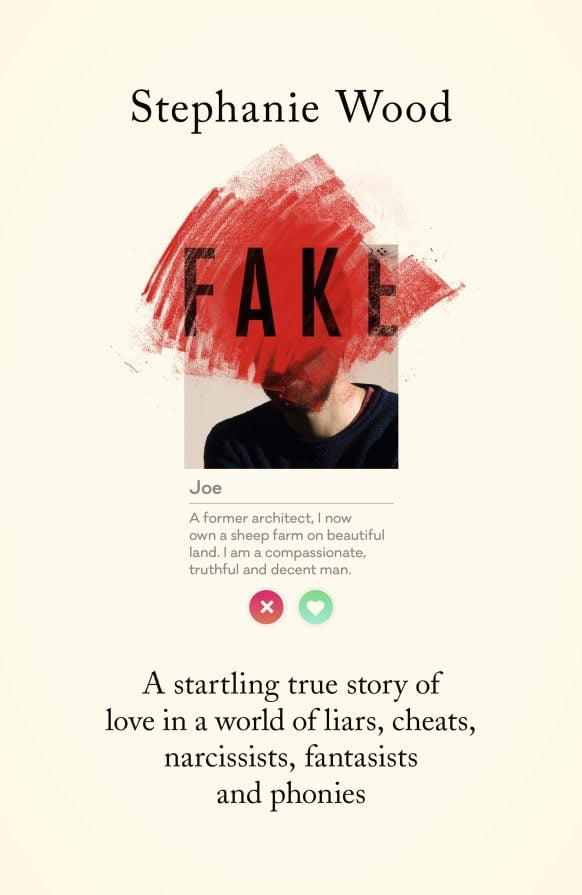Fake by Stephanie Wood
It’s a truism that love is blind; what’s less obvious is just how much evidence it can ignore.
Well, here’s a cautionary tale for our times! Talk about buyer beware, or in this case, dater beware. Wood meets ‘Joe’ via an online dating app. He’s interesting, self-deprecating and charming. A former architect who is now farming a rare breed of sheep. He has big plans. He has two children and a ‘crazy’ ex-wife. He has a lovely old wooden yacht. She falls in love. She thinks he’s ‘the one’.
But as the relationship develops, Wood starts to wonder about Joe’s many cancellations and bizarre excuses. Mysterious phone calls that call him away at the last minute. There’s always a crisis that stops them from going away together or visiting his farm. His dog is bitten by a snake; he gets poisoned by sheep-dip; one of his children has an accident; there’s an emergency meeting about a property he’s buying – the list is endless. She never actually visited his house, his property, or his yacht, only ever seeing pictures on his phone. She finds herself in a constant state of high anxiety and doubt. Her dream has turned into a nightmare.
After she ends the relationship, she begins to investigate his background. It’s not pretty. The man is a fraud. Nearly everything he has told her is a lie, a deception. Oh, and he was stringing along another women, Kirstie, at the same time as he was ‘deeply in love’ with Woods. The lies he tells are breathtaking. Woods is blindsided. She forgot the cardinal rule: show not tell, and she had let Joe tell her everything and show her practically nothing.
Woods is an investigative journalist. As she reels from the heartbreak she talks to specialists about what makes a person like ‘Joe’ – where do they come from? How can they live with the damage they do to others? She explores the science of personality disorders and finds Joe’s behaviour straddles several diagnoses. She also finds she is not alone in her bewilderment and heartache, finding numerous online forums filled with women and men desperate for empathy and understanding, so many with ‘hair-raising stories’.
And how do intelligent people, mostly women, fall for these phonies? There is much evidence to suggest that the cliche about our childhood experiences of love influencing our decisions as adults is true. ‘Our early caregiving experiences provide us with a tremendous amount of information about our own worth as a person and our own capacity to have and to participate in loving relationships.’ And it’s true that love is blind. In Essays in Love, Alain de Botton ‘conjures up both the force and the deficiencies of the whirlwinds of love: “a certain wilful exaggeration of the qualities of the beloved, an exaggeration which distracts us from our habitual pessimism…we base our fall into love upon insufficient material, and supplement our ignorance with desire”’. And we all believe in the fundamental good in another human being.
As Woods slowly recovers from her heartbreak, she finds solace in returning to the sea to swim. As her strength in the water returns, so too does her heart begin to grow strong and resilient.
A shocking, and sobering book.
Reviewed by Gaby Meares
Murder on a Monday Reading Group
Find this book in SMSA Library

